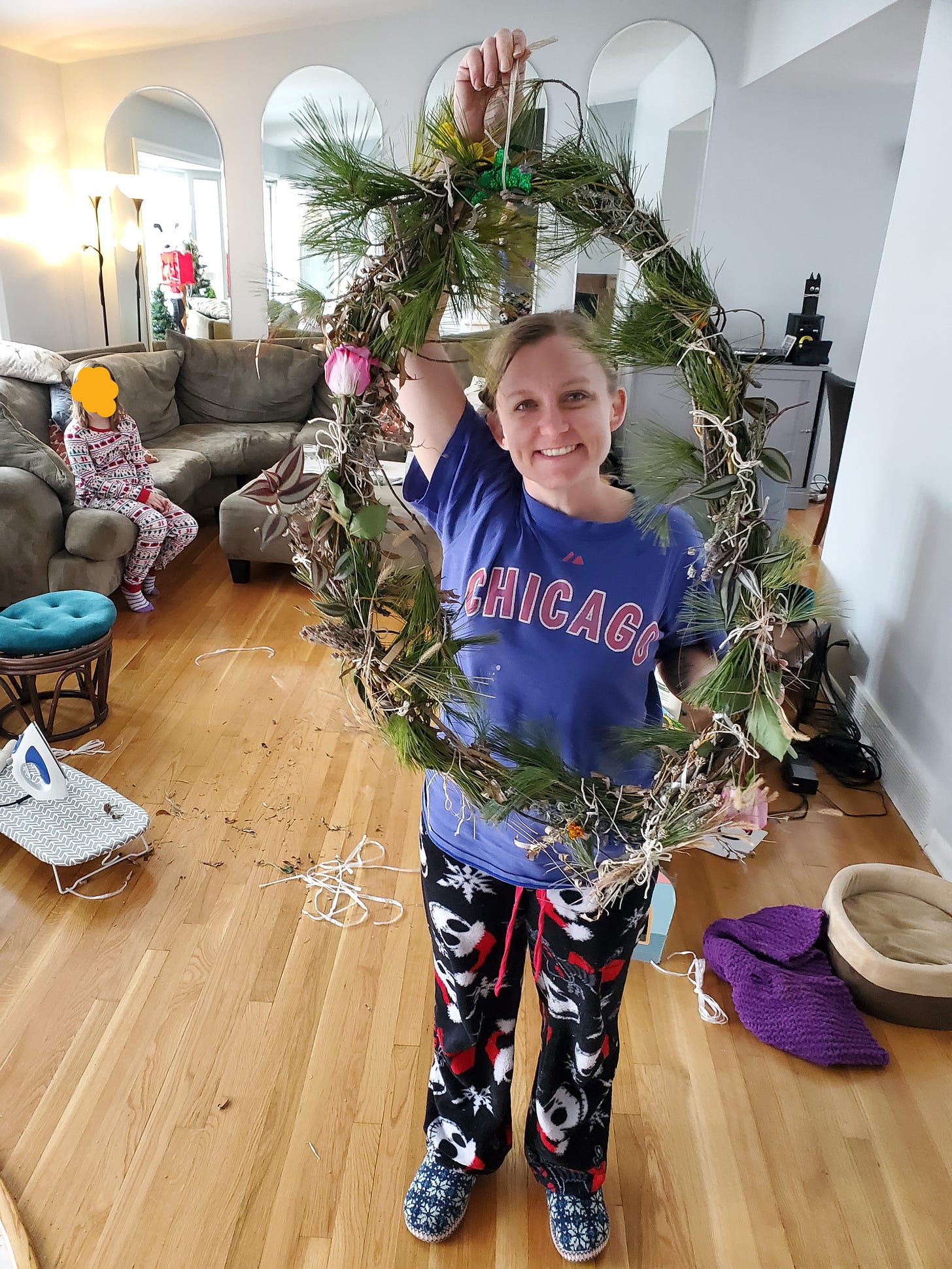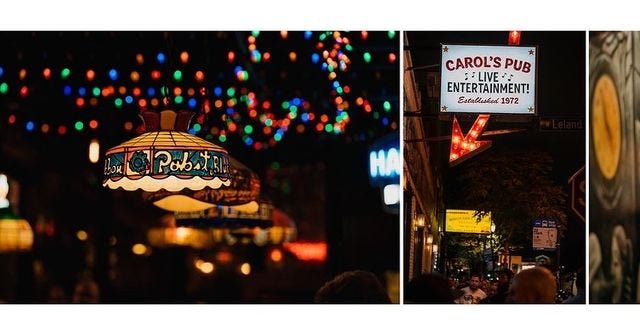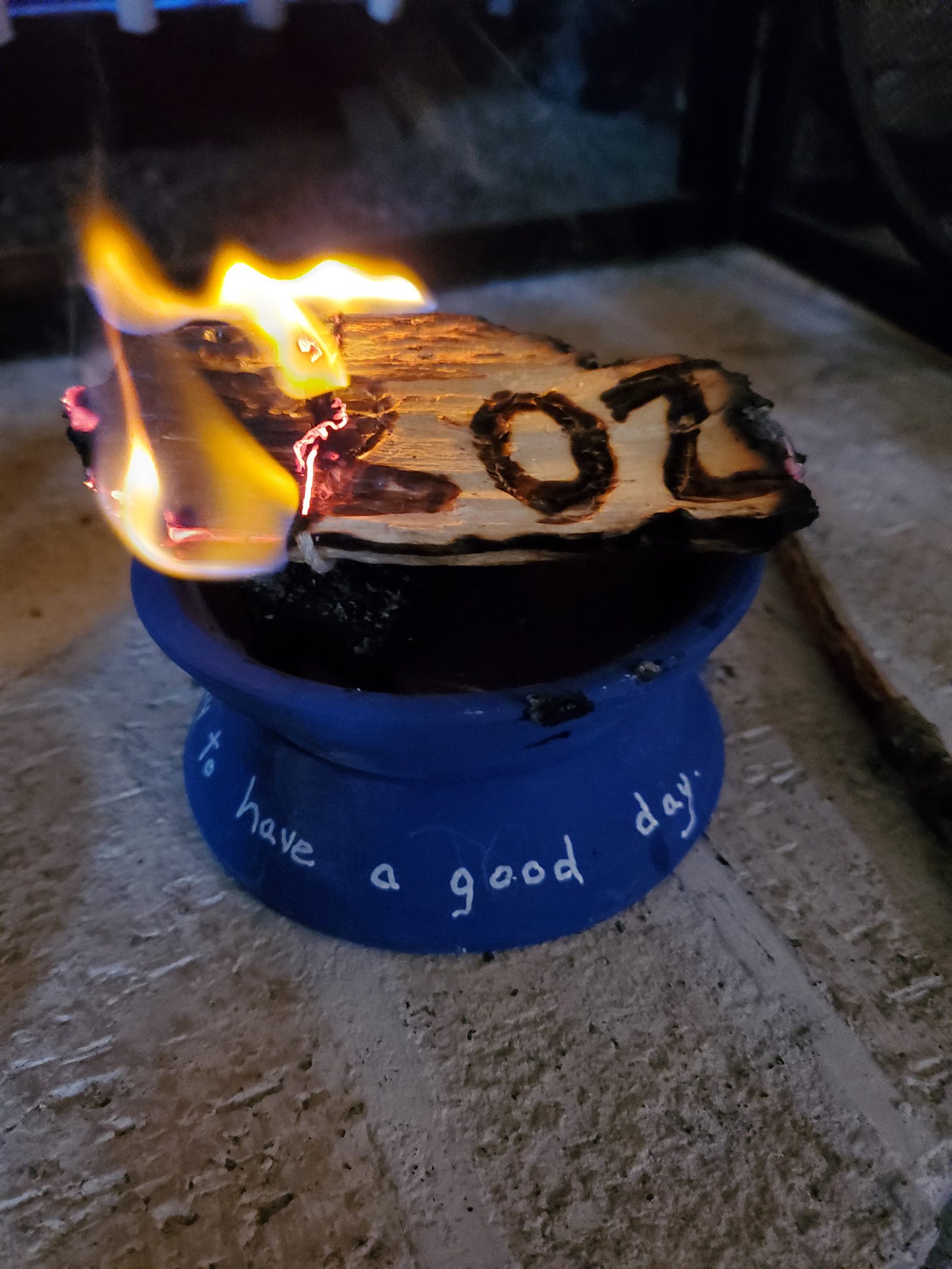I wear many hats, and I often feel like I’m feeling my way forward in the dark. Sometimes I touch on something that seems to light the way forward. Today, I found a spark.
I ventured down an Instagram rabbit hole and stumbled on a New York Times writer named Paula Span. I’ll get to the article and my letter to the editor in a bit, but first, a bit about serendipity.
Finding the Helpers
It started with the band Wilco, in particular their front-man Jeff Tweedy
Which brought me to a post about Carol’s Pub by a photographer (IG: jaymiey) from Chicago (Jamie Kelter Davis, according to her IG profile).
I didn’t have to scroll far to see this picture and the accompanying words:
This is what Home Health feels like to me.
The photo is of a woman in Blue Island, IL. It brought me to this NYT article Who Will Care for ‘Kinless’ Seniors?. Please read it and other posts by Paula Spann. Her words resonate with me deeply. She’s taken what I feel is a problem, and she’s shone a light on it in a measurable way. Turning my feelings into facts. I feel the impact of her words, I am brimming with appreciation, and I felt moved to write to the NYT editor in support and thanks for her work.
All this is to say — our words and actions matter. What we say, do, and how we feel resonates across time and space. If you listen to the audio above, you’ll understand what today’s adventure has meant for me. A spark: ignited! If you continue listening below, I hope it will shed some light on our 2023 path forward. Thank you, dear reader, for sticking with me in the darkness. We’re going to need each other in the dance ahead!
Letter to the Editor of the NYT
(Understanding this likely surpasses their word-count limit, I still felt it was worth sending and I hope it reaches the writer herself)
To whom it may concern,
I am a nurse working in the Chicago suburbs, and recently came upon the work of Paula Span. I first want to thank the editors at NYT for supporting this important work. Her words are ESSENTIAL.
Paula is shining a light on problems that I've grappled with for over a decade, and I'm thankful that she's taking the time to dig in deep. I've tried writing my way towards an actionable solution, accessible across the continuum of care, age, and income in the Chicago suburbs. I'm hopeful that pieces like those by Paula Span will get us there.
How?
First: Awareness. Folks in communities across the US (those who aren't already aware that this problem is waiting for them in the shadows of adulthood) need to understand that the existing Healthcare model (the one in which we outsource care to agencies, nursing homes, hospitals) is not sustainable. So, first is Awareness.
Next: Connection. It's time to create social and helper networks in communities (through churches, senior centers, libraries, non-profits, or other clubs/organizations) that connect people to resources beyond traditional/existing services (like nursing homes, rehab centers, caregiver agencies, or other social services). [One example is The Outreach House in Lombard, Illinois (theoutreachhouse.org)]. Those who are able can offer their time/money/tools to individuals and families in need. Could be retirees looking for ways to keep busy, students seeking to serve in their community, parents hoping to demonstrate acts of service with their children, and so on). It has to start small, by finding needs in our own neighborhoods, then branching out to other areas of greater need. Extending a hand, an arm, an embrace to those around us. "Many hands make light work".
And then: Thriving. Once we've raised Awareness and created Connections -- then comes Thriving. "All the ships rise when the tide gets high" -- as more people look at the holes in the care continuum, they will begin to see ways that they can take action. If we all look at a problem and think "yes, well, that doesn't affect me directly..." -- we should finish that thought with "...yet". "That doesn't affect me... yet". We've survived several decades in a system built by and for the "wealthy", with some services and support for the "poor". Survival is not sustainable. Our communities need to thrive.
The lack of affordable, accessible caregiver services is not yet a problem for the "wealthy". But it will be when there aren't people to staff those agencies. Already, caregiver agencies are struggling to hire and retain qualified staff to care for people in their homes.
In Chicago and its suburbs, these gaps extend to traditional county social services. For example, people who meet the income requirements for Medicaid (the "poor") and then qualify for a caregiver through their county (the "disabled"), are now being put on waitlists for several months, hoping a caregiver becomes available timely. They wait in isolation, hoping someone eventually shows up.
This is not a new problem, it existed long before the pandemic. But now, while we (in "Healthcare") have your attention (the "community"), it's time to ACT. It's going to take work, but we have to start now. Before the holes get so big that we all fall through.
Paula Span is shining a light on the needs. Look where she's pointing. Take what she says, and find ways to be a helper in your own community. Gather and create new ways to care for people in their homes. The "kinless" seniors, the adult children caring for their aging or disabled parents, the spouses or partners tending to the needs of their loved one's aging or disabling bodies. You don't have to go far to find gaps in care across the country.
It's too easy to turn a blind eye on a problem that feels insurmountable, a bit frightening, invisible. It feels safer to ignore the problem, paint over it, pretend it's not there. It will be okay, we just need the right people (you, me, us) to see our place in the care-giving spectrum, and then heed the call to take action locally. Contact your local food pantry, senior center, religious organization, shelter, non-profit, and ask how you can serve. Do you have time, money, or resources to spare? Ask, and then DO.
Thank you for all you do to stay informed and engaged. I will look forward to sharing more in 2023.
With love,
Jessie Hammersmith MSN, RN
Lombard, IL






